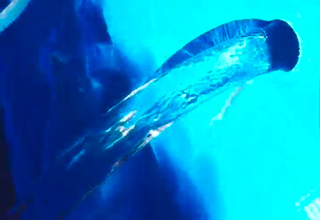Most people here, know by now, that I think a lot of psychopaths run business and are in positions of power. Of course, I am not an expert, so lets see what a one of them have to say in regards to my idea.
By: Alan DeutschmanJuly 1, 2005
One of the most provocative ideas about business in this decade so far surfaced in a most unlikely place. The forum wasn't the Harvard Business School or one of those $4,000-a-head conferences where Silicon Valley's venture capitalists search for the next big thing. It was a convention of Canadian cops in the far-flung province of Newfoundland. The speaker, a 71-year-old professor emeritus from the University of British Columbia, remains virtually unknown in the business realm. But he's renowned in his own field: criminal psychology. Robert Hare is the creator of the Psychopathy Checklist. The 20-item personality evaluation has exerted enormous influence in its quarter-century history. It's the standard tool for making clinical diagnoses of psychopaths -- the 1% of the general population that isn't burdened by conscience. Psychopaths have a profound lack of empathy. They use other people callously and remorselessly for their own ends. They seduce victims with a hypnotic charm that masks their true nature as pathological liars, master con artists, and heartless manipulators. Easily bored, they crave constant stimulation, so they seek thrills from real-life "games" they can win -- and take pleasure from their power over other people.
On that August day in 2002, Hare gave a talk on psychopathy to about 150 police and law-enforcement officials. He was a legendary figure to that crowd. The FBI and the British justice system have long relied on his advice. He created the P-Scan, a test widely used by police departments to screen new recruits for psychopathy, and his ideas have inspired the testing of firefighters, teachers, and operators of nuclear power plants.
According to the Canadian Press and Toronto Sun reporters who rescued the moment from obscurity, Hare began by talking about Mafia hit men and sex offenders, whose photos were projected on a large screen behind him. But then those images were replaced by pictures of top executives from WorldCom, which had just declared bankruptcy, and Enron, which imploded only months earlier. The securities frauds would eventually lead to long prison sentences for WorldCom CEO Bernard Ebbers and Enron CFO Andrew Fastow.
"These are callous, cold-blooded individuals," Hare said.
"They don't care that you have thoughts and feelings. They have no sense of guilt or remorse." He talked about the pain and suffering the corporate rogues had inflicted on thousands of people who had lost their jobs, or their life's savings. Some of those victims would succumb to heart attacks or commit suicide, he said.
Then Hare came out with a startling proposal. He said that the recent corporate scandals could have been prevented if CEOs were screened for psychopathic behavior. "Why wouldn't we want to screen them?" he asked. "We screen police officers, teachers. Why not people who are going to handle billions of dollars?"
It's Hare's latest contribution to the public awareness of "corporate psychopathy." He appeared in the 2003 documentary The Corporation, giving authority to the film's premise that corporations are "sociopathic" (a synonym for "psychopathic") because they ruthlessly seek their own selfish interests -- "shareholder value" -- without regard for the harms they cause to others, such as environmental damage.
Is Hare right? Are corporations fundamentally psychopathic organizations that attract similarly disposed people? It's a compelling idea, especially given the recent evidence. Such scandals as Enron and WorldCom aren't just aberrations; they represent what can happen when some basic currents in our business culture turn malignant. We're worshipful of top executives who seem charismatic, visionary, and tough. So long as they're lifting profits and stock prices, we're willing to overlook that they can also be callous, conning, manipulative, deceitful, verbally and psychologically abusive, remorseless, exploitative, self-delusional, irresponsible, and megalomaniacal. So we collude in the elevation of leaders who are sadly insensitive to hurting others and society at large.
But wait, you say: Don't bona fide psychopaths become serial killers or other kinds of violent criminals, rather than the guys in the next cubicle or the corner office? That was the conventional wisdom. Indeed, Hare began his work by studying men in prison. Granted, that's still an unusually good place to look for the conscience-impaired. The average Psychopathy Checklist score for incarcerated male offenders in North America is 23.3, out of a possible 40. A score of around 20 qualifies as "moderately psychopathic." Only 1% of the general population would score 30 or above, which is "highly psychopathic," the range for the most violent offenders. Hare has said that the typical citizen would score a 3 or 4, while anything below that is "sliding into sainthood."
More expert opinions to come.






2 Comments